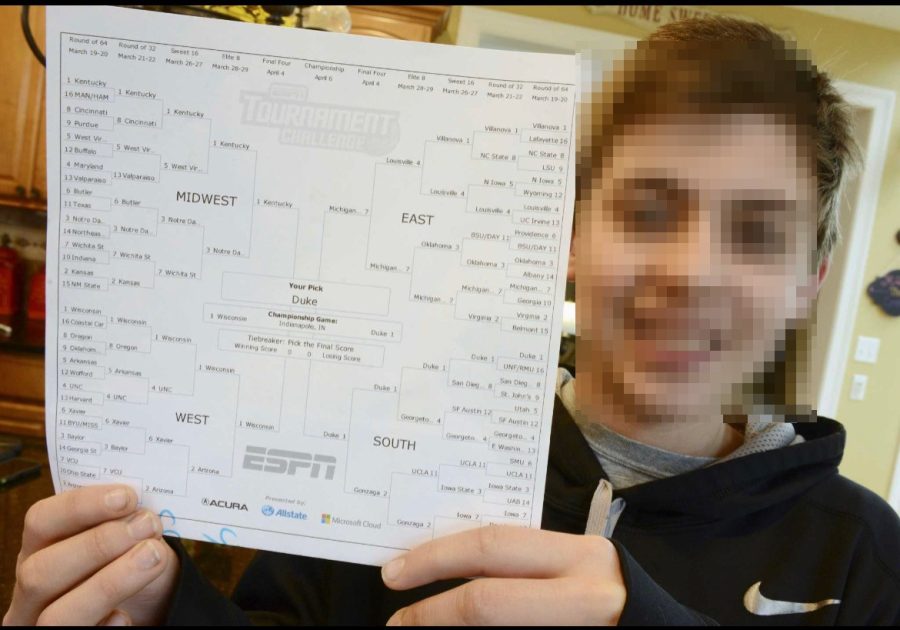Lakeside Student Wins March Madness Bracket Challenge
When it comes to major sporting events, a select few come to mind where almost everyone, regardless of commitment to sports, comes together to enjoy their beauty. From the Super Bowl to the FIFA World Cup, Olympic Games, and of course, March Madness, anything can happen, and no matter how hard you expect the unexpected, nothing will go as you imagine. The Bracket Challenge is something that brings even more excitement to the tumultuous month of March basketball. Guessing the national champion, first round upsets, and Cinderella stories is something everyone wants a part of, regardless of supposed college basketball knowledge. The odds of correctly picking a perfect bracket are 1 in 9,223,372,036,854,775,808 (if you flipped a coin for every pick), meaning, according to the University of Hawaii, that you are statistically more likely to correctly pick one specific grain of sand out of every grain of sand on the planet.
However, these odds aren’t really the case because most picks aren’t completely random. With a small amount of basketball knowledge and a little bit of common sense, most people can make educated guesses. For example, since the start of the tournament up until this year, there had only been 1 instance where a 16 seed has beaten a 1 seed (out of 147 games). That right there almost automatically contributes to 4 correct picks. But of course, the madness began extra early this year, with FDU upsetting number 1 ranked Purdue in the first round, providing us with the second ever 16-seed upset. Given this, the adjusted average guess accuracy for an average game is 66.7% (according to NCAA.com). With this new percentage the odds of a perfect bracket shrink to a mere 1 in 120 billion. To contextualize that, if every single person in the United States filled out a completely unique bracket that was 66.7% accurate, we’d expect to see a perfect bracket 366 years from now. Tough odds, right? Well, yeah. That’s why hedge fund multibillionaire Warren Buffett has offered $1 billion to whoever achieves this feat.
While the $1 billion available to the first perfect bracket ended with the shocking upset of Purdue, the $100,000 available to the winner of the ESPN bracket challenge still stood as the ultimate prize, and Tatler has the honor of announcing that a Lakeside junior, who has chosen to remain anonymous for legal reasons, won this year’s ESPN men’s tournament bracket challenge! Lakeside has had a longstanding history of athletic success, with state championships in soccer and even chess, but achieving the best bracket out of 70 million is something that no head of school, past or present, would expect out of their student body.
The student declined a longer, in-person interview, stating that they would prefer to keep a low profile for the foreseeable future and to ensure they have solved any additional legal issues involved with attaining their tournament winnings. They did, however, offer to provide some words of wisdom when asked, “How could you have possibly predicted games such as FDU’s historic upset over Purdue, Arkansas’s victory over reigning champs Kansas, or 15-seed Princeton’s astounding run knocking off offensive juggernauts such as Arizona and Missouri?” They responded, “Honestly, I probably have close to zero ball knowledge. I forgot to do my bracket and filled it out in about 5 minutes the morning of the first games. As for my picks, my main criteria were 1) gut feeling 2) team vibes and 3) color schemes.” Despite not knowing anything about college basketball, this Lakeside junior was able to achieve the best bracket in the world, defying all odds and contributing to the madness of March.

